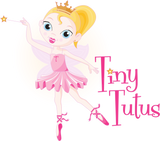Why Your Child Doesn’t Have to Be the Diva of the Dance Floor
Why Your Child Doesn’t Have to Be the Diva of the Dance Floor
Not every child needs to be outgoing or performative in ballet class to succeed. At Tiny Tutus, we celebrate quiet confidence, focus, kindness, and personal growth, not just centre-stage personalities. Dance is about learning, not performance pressure.
Not Every Dancer Wants the Spotlight - And That’s Okay
If you’ve ever sat in a ballet class and thought,
“My child’s not doing what that little girl is doing…”
…this post is for you.
We live in a world that loves big personalities.
The loudest twirl. The boldest smile. The kid who performs before the music even starts.
And while there’s absolutely nothing wrong with that kind of energy, we want to say this clearly:
Your child doesn’t need to be the “diva” to belong in ballet class.
The Quiet Child Is Learning, Too
Maybe your ballerina is:
- More interested in the music than the movement
- Focused and serious instead of bubbly and bouncy
- Gentle, cautious, or slower to participate
- Showing kindness and thoughtfulness instead of star power
That’s not less-than.
That’s beautiful.
At Tiny Tutus, we honour every child’s way of learning, not just the ones with jazz hands and high kicks.
Ballet Isn’t Just About Performance - It’s About Process
We don’t measure success by who smiles the biggest at the end-of-term concert.
We measure it by:
- The shy child who finally joins the circle
- The thoughtful dancer who waits for her turn
- The careful student who watches intently for weeks, then tries her first plié
- The child who comforts a classmate instead of competing with her
These are the moments that matter.
And they’re often invisible to people chasing perfection.
Why It’s Important to Let Kids Lead Their Own Experience
When we let children take ownership of their journey, instead of comparing them to others, we give them:
- Confidence in who they really are
- Autonomy over their body and choices
- A relationship with movement that feels safe, joyful, and internally motivated
This is especially important for young children in the 2–6 age range, when personality, identity, and self-image are still forming.
And it helps prevent the pressure, perfectionism, and performance anxiety that often shows up in older dancers.
Are You Comparing Your Child to the Loudest One in the Room?
That’s a hard question, but a necessary one.
It’s easy to feel insecure when someone else’s child seems:
- More enthusiastic
- More expressive
- More “on track”
But your child might be learning even more, quietly, thoughtfully, in her own time.
And more importantly, she’s building resilience, not performing it.
What We Value at Tiny Tutus
Our teachers are trained to celebrate:
- Progress, not perfection
- Kindness over competitiveness
- Presence over performance
- And the long game of confidence, not the short hit of applause
We’ve been the quiet child.
We’ve taught the quiet child.
And we know, without a doubt, that when you give her the time and space to grow, she will surprise you in the most beautiful ways.
Let Her Be Herself (And Let It Be Enough)
So if your child isn’t the star of the class - that’s not a problem. That’s a personality.
And it deserves just as much love, encouragement, and space as the biggest smile in the room.
We'd love to welcome you to Tiny Tutus! Book a Class That Celebrates Every Personality today or Learn More About Our Child-Led, Confidence-Building Approach here
